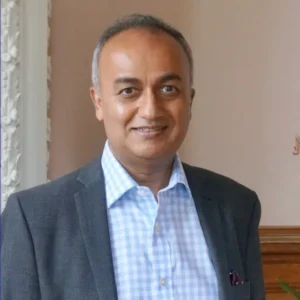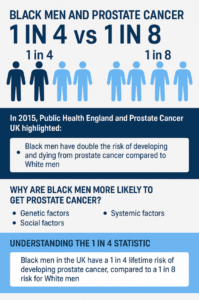Living with prostate cancer
Thanks to advances in diagnostics and treatments, you may live with your prostate cancer for many years. Depending on the stage of your prostate cancer, your chances of living for over 5 years after your diagnosis are over 95%.
However, being diagnosed with any kind of cancer can be overwhelming. You might be left with lots of questions about your options. Your medical team can advise you on their recommendations, but it’s important you consider what is important to you.
This content is not intended to be a substitute for professional medical advice, diagnosis, or treatment. Read more.

Active surveillance and watchful waiting
If your cancer is diagnosed early or is very slow growing, your doctor might decide it doesn’t need treatment straight away. Instead, you will have regular PSA tests and MRI scans to monitor how your cancer is developing. If any changes are detected, you may need a biopsy to confirm them (transperineal or transrectal). An active surveillance or watchful waiting approach has been championed because it can reduce ‘unnecessary’ radical treatments that can lead to major side effects. However, many people find that knowing they have cancer causes severe anxiety.
“my doctor….pushed back on me having a PSA test. I pushed back on him and said, well, actually, from what I’ve read, it says that family history is significant. So he conceded and I had a PSA test, and that was all normal…..I got to 54 [and my] PSA level started to go up.”
Alphonso Archer
The Focal Therapy Clinic patient
Lost in prostate speak?
Not familiar with this? Head to our podcasts to help you understand the terminology
PSA tests
PSA, or prostate-specific antigen, is a protein produced by your prostate gland. Everyone with a normal prostate will have a small amount of PSA in their bloodstream, but elevated levels can indicate prostate problems, including cancer. To check your PSA level, your doctor will take a small blood sample and send it to a lab to be measured.
Regular PSA tests will show any increases from your normal level and show more accurately if there could be a problem. If your PSA is found to be increasingly rapidly, or is over 4, you are likely to be referred for an MRI to investigate further. If you are on active surveillance, you may have PSA tests every 3-6 months.
MRI scans
You should have had a magnetic resonance image (MRI) scan when you were first diagnosed to look for any abnormalities in your prostate, if your PSA was found to be rising. If any cancer is found on your MRI, it will be used to guide your biopsy and diagnose your cancer more reliably. An MRI scan uses magnetism and radio waves to make a picture of the inside of your body.
mpMRI
A multiparametric MRI, also called a prostate MRI, combines 4 different images to make a very high-quality image of your prostate cancer. This provides your specialist even more information than a normal MRI. Approximately 80% of hospitals in UK now have access to mpMRI scans for enhanced imaging and target biopsies. However, not all hospitals are offering a full mpMRI; many offer a biparametric scan, which is less definitive. Learn more about MRIs for prostate cancer.
Biopsies
Finding cancerous tissue via a biopsy is needed to definitively diagnose prostate cancer. All biopsies used to be conducted transrectally; this means a thin needle is used to collect tissue samples through the rectum. It’s usually done under local anaesthetic, so you are awake during the procedure. Many people find transrectal biopsies painful and there is a strong risk of infection.
Now, NICE recommends that transperineal biopsies are used to diagnose and monitor prostate cancer. The needle enters through the skin between the scrotum and rectum. Compared with transrectal biopsies, they are as accurate but have a much lower risk of infection and sepsis.
NHS hospitals will often perform biopsies under local anaesthetic, which can be painful. If you have a biopsy done privately, you will have the option for it to be done under general anaesthetic, which allows for significantly improved accuracy and enhanced patient comfort.
Fusion biopsies are another way that biopsies have been made less painful, safer and more useful. Your MRI scan is combined with a real-time ultrasound so only the suspicious areas are biopsied.
Any questions?
If you’ve got any questions about your prostate cancer diagnosis or want to know more about HIFU or NanoKnife, don’t hesitate to get in touch with our friendly, knowledgeable team.



















